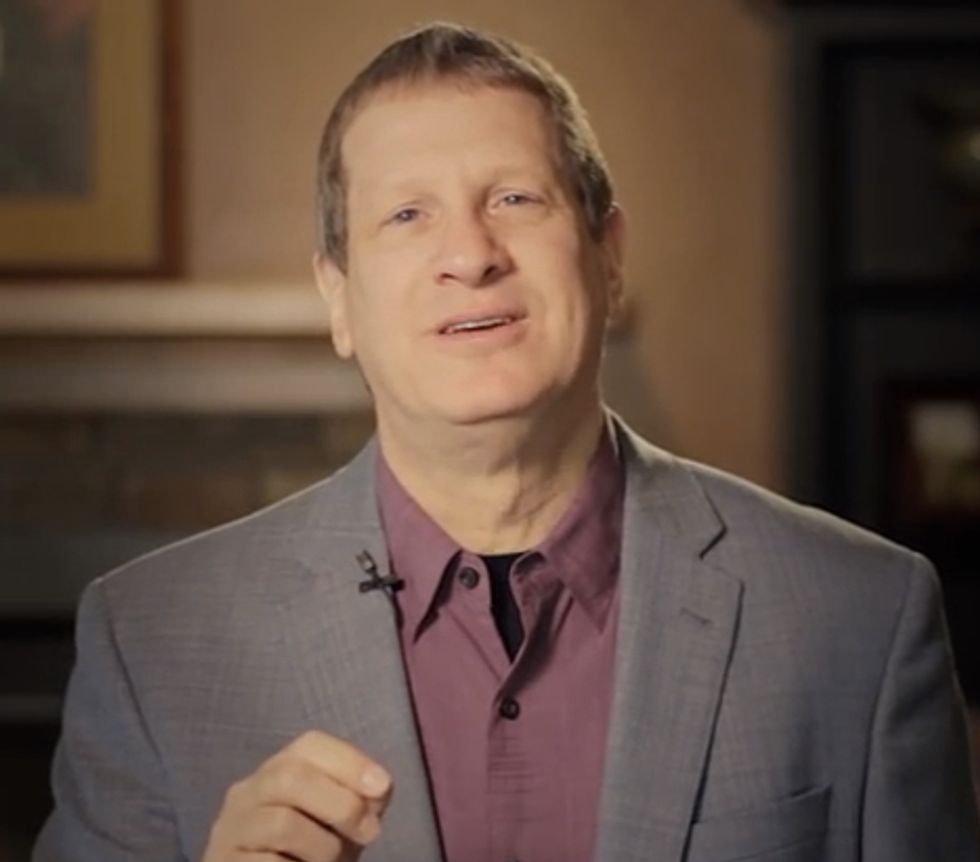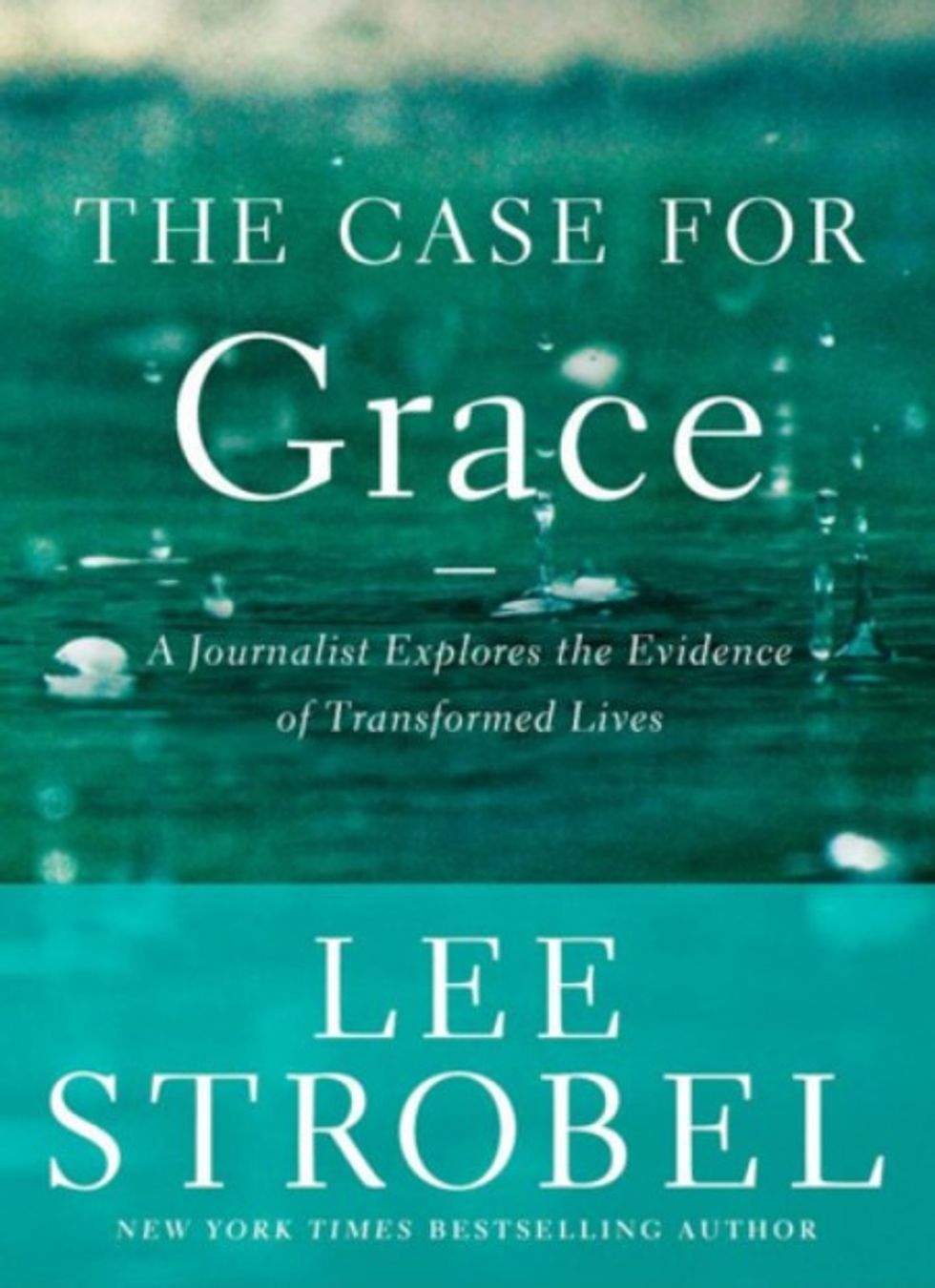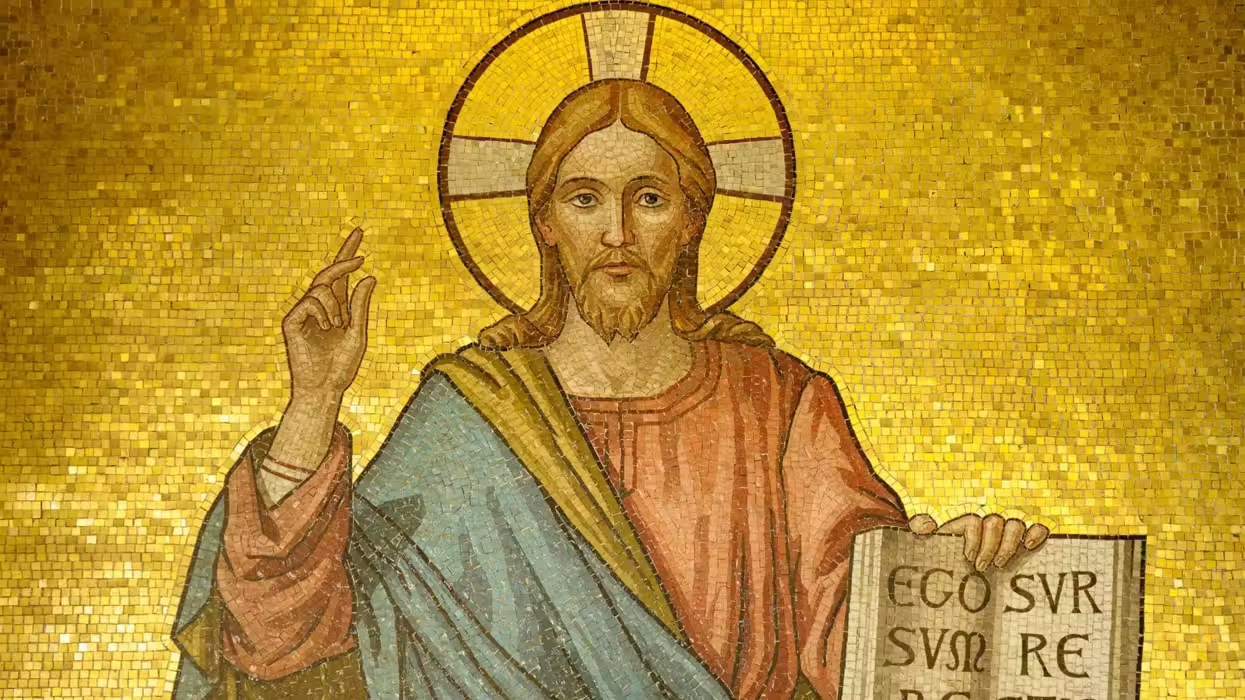
© 2025 Blaze Media LLC. All rights reserved.
Atheist Journalist Spent Two Years Intensely Investigating Jesus and the Bible — and What Happened Next Changed His Life Forever
March 03, 2015
"Where does science point? Where does history point? What about Jesus — did he ever claim to be the son of God?"
Journalist and pastor Lee Strobel was once an atheist who rejected any notion of the supernatural, but after spending two years interviewing experts and diving deep into theology, he says he found himself overwhelmed by the evidence for Jesus Christ's life, death and resurrection.

Strobel, who converted to Christianity in 1981, leaving behind what he said was a "narcissistic and profane" life, has a new book out titled "The Case for Grace," which focuses on his belief that God's grace can profoundly transform lives.
And Strobel told TheBlaze on Tuesday that it's his own story of going from staunch atheist to passionate Christian that has shown him just how transformational such a conversion experience can be.
Flashing back to 1981, Strobel described being the legal editor for the Chicago Tribune when his wife, Leslie, who was previously an agnostic, became a Christian through a friend who lived in their condo complex.
It was what happened next that left Strobel, at atheist, profoundly intrigued.
"It was the positive changes in her life that made me investigate if religion might be true," he said. "I began to look into questions — 'Where does science point? Where does history point? What about Jesus — did he ever claim to be the son of God?'"
Strobel said that the resurrection, though, was the lynch-pin for him. After all, anyone can claim to be the son of God, but Jesus' other proclamations, he said, upped the ante.
"If Jesus claimed to be son of God, died and then rose from the dead, that's pretty good evidence he's telling the truth," Strobel said. "That's the ballgame — the resurrection of Jesus."
And that's the issue that Strobel, a staunch reporter, spent a lot of time investigating; he didn't have a book deal at the time and said that he embarked on the journey in an effort to be an "honest reporter" and to dig deeper, based on his curiosity, into some key theological themes.
"I would do research, call people to ask questions," he said. "I didn't even keep very good notes."
When all was said and done, Strobel concluded that Jesus did, indeed, live, claim to be divine and was inevitably executed, with Strobel suddenly finding himself rejecting the notion that it was all "a legend."
Exploring all available information, Strobel said that it became evident that everyone — even Jesus' critics — agreed that Christ's tomb was empty following his crucifixion, though the debate centered on whether he truly came back, or whether the body was stolen.
Observing all of this biblical and outside information about Christ's life and ministry had a profound impact on Strobel, until one day he realized that the "scales had tipped."
"On Nov. 8, 1981, I went alone in my room and I thought, 'I've got to get down on paper the evidence that I've investigated for these two years,'" he said. "I began to write [and] finally, after many pages, I put down my pen and … I realized it would take more faith to maintain my atheism than become a Christian."
Strobel said that accepting Christ meant leaving his past behind.
"I believed based on the historical data, but I had to receive this grace — the free gift of forgiveness and eternal life," he said. "I confessed a lifetime of immorality, a narcissistic, profane life … and I confessed that and I received forgiveness."
When he walked out of the bedroom that day and told his wife about his decision, he said she cried with joy.
Years later, she suggested that he write "The Case for Christ," a book that retraced and expanded upon the initial journey of exploration that took him from atheism to Christianity more than a decade earlier.
Since that time, Strobel has written subsequent books, including, "The Case for Faith" and "The Case for a Creator," among others. His latest text in that series, "The Case for Grace," dives further into his personal journey and his belief that the gospel transforms lives.
He told TheBlaze that he wrote the book in order to explore the "experiential case" in which he believes God changes peoples' lives.
"I want Christians to walk away evermore in awe of the grace of God, evermore grateful for his forgiveness and gift of eternal life," Strobel said. "But my hope is they will be so moved by God's grace that they can't keep it to themselves … that they all turn around and give that book away [to someone else who needs it]."
Want to leave a tip?
We answer to you. Help keep our content free of advertisers and big tech censorship by leaving a tip today.
Want to join the conversation?
Already a subscriber?
Billy Hallowell is a digital TV host and interviewer for Faithwire and CBN News and the co-host of CBN’s "Quick Start Podcast."
Billy Hallowell
Billy Hallowell is a digital TV host and interviewer for Faithwire and CBN News and the co-host of CBN’s "Quick Start Podcast."
more stories
Sign up for the Blaze newsletter
By signing up, you agree to our Privacy Policy and Terms of Use, and agree to receive content that may sometimes include advertisements. You may opt out at any time.
Related Content
© 2025 Blaze Media LLC. All rights reserved.
Get the stories that matter most delivered directly to your inbox.
By signing up, you agree to our Privacy Policy and Terms of Use, and agree to receive content that may sometimes include advertisements. You may opt out at any time.






